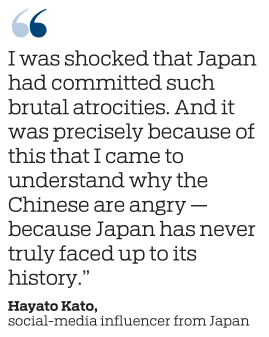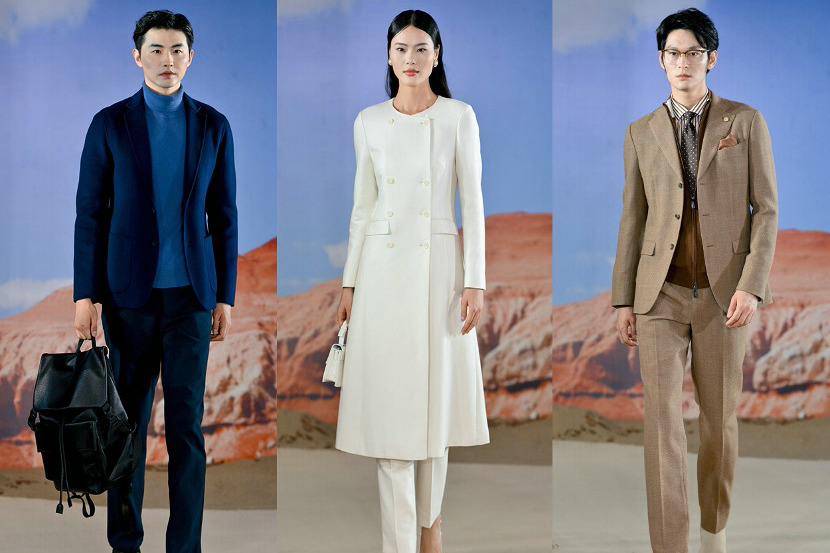Museum visits turn Japanese youth into advocate for truth

In 2023, at the Memorial Hall of the Victims of the Nanjing Massacre by Japanese Invaders in Jiangsu province, a 27-year-old Japanese, Hayato Kato, knelt before a sculpture inscribed with the word "peace", bowing his head in mourning for the 300,000 Chinese civilians slaughtered by Japanese invaders.
"I am Japanese, yet I did not know my country had committed such cruel acts. I knelt to express my apology," Kato recalled at a recent China-Japan Peace and Friendship Exchange event at the Chinese Consulate-General in Nagoya.
Kato, from Japan's Gifu prefecture, first visited China as a university student, drawn by Chinese culture and the warmth of its people. In 2022, he moved to China and traveled to more than 20 provinces, documenting his experiences from a foreigner's perspective.
A social-media influencer with over 2.7 million followers, his early videos were lighthearted travelogues, but frequent comments suggesting he visit Nanjing or Harbin (in Heilongjiang province) shifted his focus.
He has now toured nearly 30 wartime memorials and atrocity sites, from the site of the Defense of Sihang Warehouse in Shanghai to the former site of the headquarters of infamous Unit 731, a Japanese germ warfare unit during World War II, in Harbin.
"I went to these places almost completely ignorant of history. In Japan, I had basically never learned any of this," Kato says.
The experience was jarring. Japanese school curricula barely cover the country's wartime aggression; and some politicians still deny the Nanjing Massacre.
At the former site of the headquarters of Unit 731, where Japanese scientists carried out gruesome human experiments, Kato says the evidence was "so cruel that it gave me goose bumps".
Kato says that the knives and other physical evidence on display, along with the Japanese army's attempts to cover up its crimes through demolition, made him realize the enormity of the war crimes committed by the invading Japanese forces.
"I was shocked that Japan had committed such brutal atrocities. And it was precisely because of this that I came to understand why the Chinese are angry — because Japan has never truly faced up to its history," Kato says.
He was struck by how Japan tends to emphasize its own victimhood by publicizing the suffering of its own people, while sidestepping its role as an aggressor.
Videos of his visits drew praise from Chinese viewers for confronting the past, but also provoked vitriol from Japanese audiences. "Even if being attacked, I want to keep speaking out," he says.
This year marks the 80th anniversary of the victory in the Chinese People's War of Resistance Against Japanese Aggression and the World Anti-Fascist War. Kato is planning to bring more Japanese citizens to China's wartime memorials.
"Admitting past mistakes is the first step toward peace," he says.






































